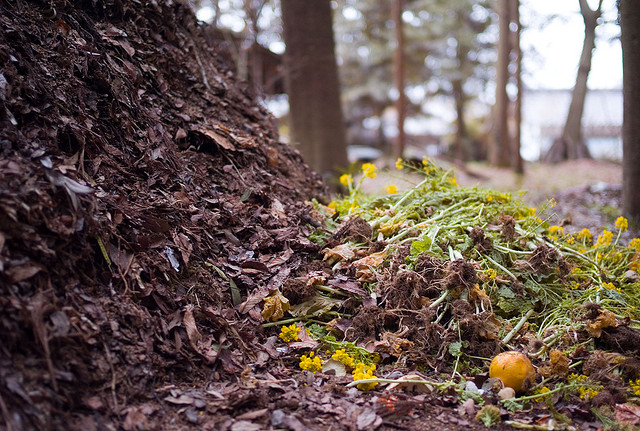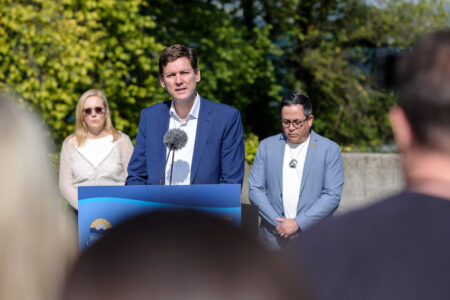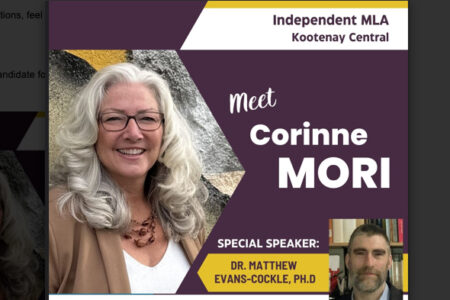Composting has low priority in local waste management plans
Nelson’s yard and garden waste will be hauled to Salmo for composting after the transfer station moves to Blewett in 2014. Currently it is composted at the transfer station near the Nelson airport.
Local residents demanded that there be no composting at the new Blewett site, according to Mike Morrison, Resource Recovery Manager for the Regional District of Central Kootenay (RDCK).
Blewett neighbours said ‘no’ to composting
“When we did public consultations in Blewett, one of the things that we heard was concern about attracting rodents and creating odours,” Morrison told The Nelson Daily. “We made a commitment to that community.
“I think their concern was that we have longer term plans to get into food waste composting,” he said. “The other commitment we made is that this will never be a landfill, and we also committed to never having a waste energy site there.”
Morrison said the Blewett site, located near Pacific Insight, would not be suitable for composting in any event. “It is a sloped site and we anticipate it will be mostly taken up by transfer station operations.”
Responsibility for local waste management is divided between the City of Nelson and the RDCK. The city collects garbage and recycling and takes it to the transfer station. The RDCK runs the transfer station and the Salmo landfill, hauls garbage to the Salmo landfill from Nelson, and contracts with a private company to take recycled material from the transfer station.
Macdonald is disappointed
When Morrison presented this information to City Council on January 26, Councillor Donna Macdonald expressed disappointment about the RDCK’s no-compost commitments for the Blewett site.
“I was really hopeful that we would at long last have a way to deal with composting of yard and household waste,” she told The Nelson Daily, “because it is a substantial fraction of the waste stream and it is crazy to be hauling potato peelings and branches to Salmo. We should be putting that material to work and not hauling it around.”
Jessen: let’s democratize composting
“If you want to keep trucking stuff all over the geography of this Regional District,” says local waste management consultant Michael Jessen “that is going to cost you more and more money as the price of diesel keeps going up.”
Jessen thinks composting should be done in back yards or in small neighbourhood projects, rather than “throwing a bunch of money at it and trucking it someplace.”
Jessen told The Nelson Daily that compostable material generallly makes up about 40% of material going to landfills.
“We can institutionalize composting, or we can democratize it,” Jessen says. Democratizing it would mean having a continuous public program of education and reminders about how to do effective small scale composting, he says.
Society tends to institutionalize waste management (give it to governments to look after), Jessen says, because “we don’t want in our faces. But it has to be in our face, otherwise we won’t change the way we live, and we all know what that is doing to the planet.”
Macdonald wants a city-run pilot project
But Macdonald thinks local government should be in the composting business. Referring to the RDCK’s decision not to compost in Blewett, Macdonald said, “I hope that is not a final ‘no,’”
She says she would like to see the City undertake a composting pilot project. “Composting is the last piece. We have kind of got recycling in hand, and so now we have to deal with the compost piece.”
RDCK: upgrading transfer facilities comes first
The RDCK’s Morrison says it will be a long time before the RDCK gets into composting food waste. “It is a major initiative to get into advanced food waste composting systems. You are typically into a much more intensive technology, there are regulatory requirements, and a more intense management regime. One of the reasons we don’t have it in our Five Year Plan is our immediate focus is on upgrading our transfer facilities and improving the efficiency of our waste hauling.”

























